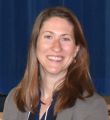LIVING WATER SMART IN BRITISH COLUMBIA: “Passion is the glue for collaboration when everyone shares a common set of values and a vision for reconnecting people, land and water,” stated Paul Chapman, Chair, when he reflected on the remarkable team effort during the time of COVID to produce Watershed Moments 2020, the Video Trilogy Series

“Producing three videos in just six months required an incredible commitment by all 15 members of the Watershed Moments Team . As I reflect on all three modules in the series, the thread that attaches them all is the different layers of responsibility that team members represent. Yet most team members only knew a few of the other members when we began our sprint to create the series. Through the shared experience of doing something bold and original, everyone connected and bonded in a way that would not have happened without COVID,” stated Paul Chapman.










